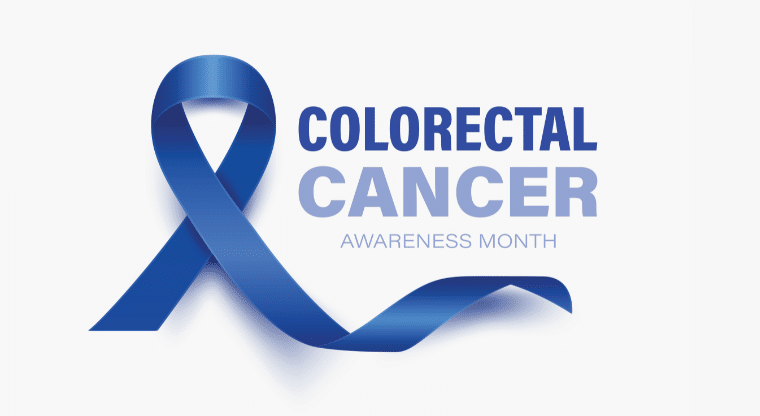September 8, 2023
M&D Clinical Corner: Community Pharmacist’s Guide to Immunization
The Clinical Corner is a monthly feature that highlights a variety of important pharmacist topics that is written by Morris & Dickson’s staff pharmacist, Paula Belle (RPh).
This month’s Clinical Corner will discuss Immunization:
- COVID-19 Vaccines
- Influenza Vaccines
- Respiratory Syncytial Virus (RSV) Vaccines
- Pneumonia Vaccines
- General preparation for the 2023-2024 immunization season
- Resources for Pharmacists
COIVD-19 VACCINES
- On June 15 , 2023 experts on the Food and Drug Administration’s (FDA’s) Vaccines and Related Biological Products Advisory Committee (VRBPAC) met and voted to update the composition of COVID-19 vaccines for the 2023-2024 fall/winter season. [1]
- Subsequently, FDA advised manufacturers planning to offer COVID-19 vaccines of the composition (monovalent XBB.1.5) that will be required. [1]
- It is anticipated that the new COVID-19 vaccine version will be available in mid to late September 2023. [1]
- These COVID-19 vaccines will be the first available directly from manufacturers as part of the commercial market rather than being distributed by the US Government as in the past. [1]
- It is expected that the FDA will make decisions and amendments to the Emergency Use Authorizations (EUA) in mid to late September. [1]
- At the same time as the FDA decisions are formalized, the US Government will discontinue distribution of the current COVID-19 vaccines. [1]
- It is anticipated that many individuals will wait to receive the updated version of the COVID-19 vaccine to receive the more robust protection that it will provide against currently circulating variants, thus reducing demand of the current versions. [1]
- Certain individuals may need or request a COVID-19 vaccination prior to the release of the updated vaccine version so it is important that access points to the current vaccine remain open. [1]
- Providers should order enough of the current vaccine to meet this reduced demand until the new vaccine version are available in mid to late September. [1]
- Current recommendations for COVID-19 vaccination for all age groups can be found at this link: https://www.cdc.gov/vaccines/covid-19/clinical-considerations/interim-considerations-us.html
- An updated recommendation for all age groups is expected in mid/late September after all regulatory agencies authorize and approve the updated COVID-19 vaccine composition. [1]
- Fall vaccine availability for administration across all groups with traditional pathways for procurement, distribution, and payment will commence once the FDA and the Advisory Committee on Immunization Practices (ACIP) formulate decisions and recommendations and providing manufacturers are ready. [1]
- The Eleventh Amendment to the PREP Act Declaration states that neither the end of the COVID-19 pubic health emergency on May 11, 2023 nor the discontinuation of US Government distribution of COVID-19 vaccines will affect the protections of the PREP Act Declaration for COVID-19 vaccines. [1]
- The PREP Act Declaration authorizes certain providers listed in the Declaration to administer vaccines regardless of state requirements. [1]
- Pharmacists can access the HHS Commercialization Transition Guide for more information on this transition at this link: https://www.cdc.gov/vaccines/covid-19/downloads/HHS-Commercialization-Transition-Guide-508.pdf
Influenza Vaccines
TIMING OF VACCINATION
- The recommended timing of flu vaccination has not changed. [2]
- September and October are the best times for most people to get vaccinated. [2]
- Flu vaccination in July and August is not recommended for most people. [2]
- For adults (especially those 65 years old and older) and pregnant people in the first and second trimester, vaccination in July and August should be avoided unless it won’t be possible to vaccinate in September or October. [2]
- Pregnant people who are in their third trimester can get a flu vaccine in July or August in order to ensure their babies are protected from flu after birth, when they are too young to get vaccinated. [2]
- Children who need two doses of flu vaccine should get their first dose of vaccine as soon as vaccine becomes available. The second dose should be given at least four weeks after the first. [2]
VACCINE COMPOSITION
- Flu viruses are constantly changing and the composition of U.S. flu vaccines is reviewed annually by the U.S. Food and Drug Administration Vaccines and Related Biological Products Advisory Committee and updated as needed to best match the flu viruses research indicates will be most common during the upcoming season. [2]
- Each year, ACIP reviews changes and approves the updated influenza vaccine policy statement for the coming influenza season. In 2023–2024, all influenza vaccines will again be quadrivalent, although the type A/H1 strains will be updated. [3]
- The 2023-2024 season U.S. flu vaccines will contain an updated influenza A(H1N1)pdm09 component [2]:
- A/Victoria/4897/2022 (H1N1)pdm09-like virus for egg-based vaccines
- A/Wisconsin/67/2022 (H1N1)pdm09-like virus for cell-based or recombinant vaccines.
- How well flu vaccine works can depend in part on the match between the vaccine viruses and circulating viruses. [2]
Preliminary estimates show that last season, people who were vaccinated against flu were about 40% to 70% less likely to be hospitalized because of flu illness or related complications. [2] - For the 2022-2023 season, vaccine protection among persons younger than 65 years was substantial, with vaccine effectiveness estimated at 54% for preventing influenza A infection that requires management by a health care provider. [4]
- Similarly, the influenza vaccine was associated with 71% effectiveness in preventing symptomatic influenza A illness among children and adolescents younger than 18 years. [4]
INFLUENZA VACCINATION FOR PATIENTS WITH EGG-ALLERGY
- The ACIP voted that people with egg-allergy may receive any flu vaccine (egg-based or non-egg based) that is otherwise appropriate for their age and health status and additional safety measures are no longer recommended for flu vaccination beyond those recommended for receipt of any vaccine. [2]
Respiratory Syncytial Virus (RSV) Vaccines
RSV VACCINATION IN OLDER ADULTS
- Most people who get an RSV infection will have mild illness and will recover in a week or two. [5]
- Some people, however, are more likely to develop severe RSV infection and may need to be hospitalized. [5]
- Examples of severe infections include bronchiolitis (an inflammation of the small airways in the lung) and pneumonia. [5]
- RSV can also make chronic health problems worse. For example, people with asthma may experience asthma attacks as a result of RSV infection, and people with congestive heart failure may experience more severe symptoms triggered by RSV. [5]
- In May, FDA licensed two RSV vaccines (Arexvy ®, GSK, and Abrysvo ®, Pfizer) to prevent RSV disease in adults age 60 years and older. [3]
- ACIP members voted to approve a single dose of RSV vaccine for adults age 60 and older with shared clinical decision-making. Considerations favoring vaccination include comorbid conditions and advanced age, in addition to other variables. [3]
RSV PEDIATRIC/MATERNAL CONSIDERATIONS
- Products currently under consideration by FDA include a vaccine (Pfizer) administered to the mother in the latter weeks of pregnancy to protect infants through transfer of maternal antibodies to the fetus before delivery, and a long-acting monoclonal antibody (mAb, nirsevimab, Sanofi) administered directly to the infant. [3]
- Both would give protection for at least 6 months. [3]
- The committee anticipates voting at the routine October ACIP meeting; a vote could be earlier if a special session is held. [3]
Pneumonia Vaccines
- The development of new pneumococcal vaccines increases the complexity of recommendations for helping patients keep up-to-date on vaccinations. Pharmacists play a key role in helping determine which vaccines are recommended for individual patients. [6]
- There are 2 types of pneumococcal vaccines available in the United States [7]:
- Pneumococcal conjugate vaccines (PCV13, PCV15, and PCV20)
- Pneumococcal polysaccharide vaccine (PPSV23)
- The Centers for Disease Control and Prevention (CDC) recommends routine administration of pneumococcal conjugate vaccine (PCV13 or PCV15) for all children younger than 2 years of age. [8]
- CDC recommends routine administration of pneumococcal conjugate vaccine (PCV15 or PCV20) for all adults 65 years or older who have never received any pneumococcal conjugate vaccine or whose previous vaccination history is unknown. [8]
- In certain situations, children 2 years or older and adults younger than age 65 should also receive pneumococcal vaccines. [8]
- PneumoRecs VaxAdvisor is a standalone application that provides patient-specific guidance consistent with the ACIP’s pneumococcal vaccination recommendations. [9]
- Pharmacists can use the app to eliminate the challenge of interpreting and synthesizing multiple vaccination recommendation statements. [9]
- The app doesn’t request or collect any personal identifying information. It also does not store any information.[9]
- The app incorporates recommendations for all ages so internists, family physicians, pediatricians, and pharmacists alike will find the tool beneficial. [9]
- The PneumoRecs VaxAdvisor Mobile App was updated on February 9, 2023, to reflect CDC’s new adult pneumococcal vaccination recommendations including for those who previously received PCV13. [9]
- Users simply [9]:
- Enter a patient’s age.
- Note if the patient has specific underlying medical conditions.
- Answer questions about the patient’s pneumococcal vaccination history.
- Then the app provides patient-specific guidance consistent with the immunization schedule recommended by ACIP.
- The iOS version of the PneumoRecs VaxAdvisor app can be downloaded at: https://apps.apple.com/us/app/pneumorecs-vaxadvisor/id1440647099
- The Android version of the PneumoRecs VaxAdvisor app can be downloaded at: https://play.google.com/store/apps/details?id=gov.cdc.ncird.pneumorecs
- A web version of PneumoRecs VaxAdvisor is available at: https://www2a.cdc.gov/vaccines/m/pneumo/pneumo.html
2022-2023 Influenza and General Immunization Preparation Checklist
PREP ACT ELEVENTH AMENDMENT
- The Eleventh Amendment to the PREP act was issued by Xavier Becerra, Secretary, U.S. Department of Health and Human Services, and became effective on May 11, 2023. [10]
- The new PREP Act declaration extends the following authorities until December 2024 [10]:
- Authority for pharmacists to order and administer COVID-19 tests and treatments.
- Authority for pharmacists to order and administer COVID-19 and influenza vaccines for adults and children ages three and up, and for pharmacy technicians to administer these vaccines under the supervision of a pharmacist.
- In a statement issued on April 14,2023, Sec. Becerra announced that it was intended that once the Public Health Emergency ended, PREP Act coverage would no longer extend to all routine childhood vaccinations by pharmacists, pharmacy interns, and pharmacy technicians. [11]
- Pharmacists should research, understand and adhere to all federal, state and local regulations that govern the administration of these vaccines by the aforementioned individuals.
GENERAL IMMUNIZATION SUPPLY CHECKLIST
- Vaccine
- Pre-order your influenza vaccines if possible and if you have not already done so.
- Become familiar with changes to the ordering process for COVID-19 vaccines as they transition to regular distribution channels.
- Administration and Emergency Supplies
- Epinephrine autojectors if required by your state. Verify expiration dates.
- Sharps containers
- Appropriate safety syringes with 25g 1.5” or 1” needles for influenza vaccines
- Medical gloves
- Alcohol wipes
- Band-Aids®
- Pens and clipboards for use with vaccination screening forms
- Hand sanitizer
- Personal PPE
- Conduct an inspection of your immunization room or area. Make sure that it is not being used as a storage area, and that it is clean and professional in appearance. Your immunization area should afford privacy and appear “hospital clean.”
- If you have hired new staff members recently, be sure that they have completed any required training. Instruct them on how to field requests for immunizations, the documentation required, pricing, insurance billing process and the types of vaccines you may carry.
- Make sure that all staff get a refresher in what to do in the event of an emergency arising due to immunizations and how to report any adverse effects http://www.immunize.org/handouts/vaccine-reactions.asp and https://vaers.hhs.gov/reportevent.html
- Make sure that all staff is up to date on required training and credentialing for your state. This may include OSHA blood borne pathogen training, yearly immunization continuing education, CPR training, and any licensing required by your board of pharmacy.
- Review correct storage and handling of general vaccines. http://www.immunize.org/handouts/vaccine-storage-handling.asp
Resources for Pharmacists
- Covid-19 Vaccination Clinical and Professional Resources are available at: https://www.cdc.gov/vaccines/covid-19/index.html
- Influenza Information for Health Professionals is available at: https://www.cdc.gov/flu/professionals/index.htm
- RSV Information for Healthcare Professionals can be accessed at: https://www.cdc.gov/rsv/clinical/index.html
- Pneumococcal Vaccination: Information for Healthcare Professionals can be accessed at: https://www.cdc.gov/vaccines/vpd/pneumo/hcp/index.html
- 2023 Fall Vaccine Guide: https://ldh.la.gov/assets/oph/Center-PHCH/Center-PH/immunizations/Fall_Vaccine_Guide_Infographic_2023.png
- 2023 CDC Vaccination Schedules are available at : https://www.cdc.gov/vaccines/schedules/
Sources
- Department of Health and Human Services, U.S. HHS Commercialization Transition Guide:Sunsetting the US Government COVID-19 Vaccine Distribution Program. 2023 [cited 2023 July 20]; Available from: https://www.cdc.gov/vaccines/covid-19/downloads/HHS-Commercialization-Transition-Guide-508.pdf
- Centers for Disease Control and Prevention. 2023-2024 CDC Flu Vaccination Recommendations Adopted | CDC. 2023 2023-06-29T01:52:20Z [cited 2023; Available from: https://www.cdc.gov/flu/spotlights/2022-2023/flu-vaccination-recommendations-adopted.htm
- Immunize.org. IZ Express #1,700: Immunize.org summarizes ACIP’s June 21-23 meeting recommending RSV and polio vaccines for adults, PCV20 for children, influenza vaccine for the 2023-2024 season, and discussing additional vaccines. 2023 [cited 2023; Available from: https://www.immunize.org/express/issue1700.asp
- Libbi Green, P. Next-Generation Vaccines and Therapies for Seasonal Influenza. 2023 July 18, 2023 [cited 2023; Available from: https://cdn.sanity.io/files/0vv8moc6/pharmacytimes/2b4505dbffb52d889015c858f2854f2511a87d0a.pdf/PHP0296_Influenza-0723_NoAds.pdf
- Centers for Disease Control and Prevention. People at High Risk for Severe RSV Infection | CDC. 2022 2022-10-28T09:17:55Z [cited 2023; Available from: https://www.cdc.gov/rsv/high-risk/index.html
- Jessica Papke, P., BCPS University of Wyoming School of Pharmacy Casper, Wyoming Micheal Cochran, PharmD Candidate 2024 University of Wyoming School of Pharmacy Laramie, Wyoming. Pneumococcal Vaccines Update for 2023. 2023 [cited 2023; Available from: https://www.uspharmacist.com/article/pneumococcal-vaccines-update-for-2023
- Centers for Disease Control and Prevention. Pneumococcal Vaccination: Who and When to Vaccinate | CDC. 2023 2023-04-14T01:06:13Z [cited 2023; Available from: https://www.cdc.gov/vaccines/vpd/pneumo/hcp/who-when-to-vaccinate.html
- Centers for Disease Control and Prevention. Pneumococcal Vaccine Recommendations | CDC. 2023 2023-05-22T06:35:37Z; Available from: https://www.cdc.gov/vaccines/vpd/pneumo/hcp/recommendations.html
- Centers for Disease Control and Prevention. PneumoRecs VaxAdvisor: Vaccine Provider App | CDC. 2023 2023-05-22T06:30:19Z [cited 2023; Available from: https://www.cdc.gov/vaccines/vpd/pneumo/hcp/pneumoapp.html
- American Society Of Health System Pharmacists. Clarification of Timeline for PREP Act Authority-ASHP. 2023 [cited 2023; Available from: https://news.ashp.org/News/ashp-news/2023/05/15/clarification-of-timeline-for-PREP-Act-authority
- U.S Department of Health and Human Services. Fact Sheet: HHS Announces Intent to Amend the Declaration Under the PREP Act for Medical Countermeasures Against COVID-19 | HHS.gov. 2023 2023-04-14T12:30:00-0400 [cited 2023; Available from: https://www.hhs.gov/about/news/2023/04/14/factsheet-hhs-announces-amend-declaration-prep-act-medical-countermeasures-against-covid19.html



